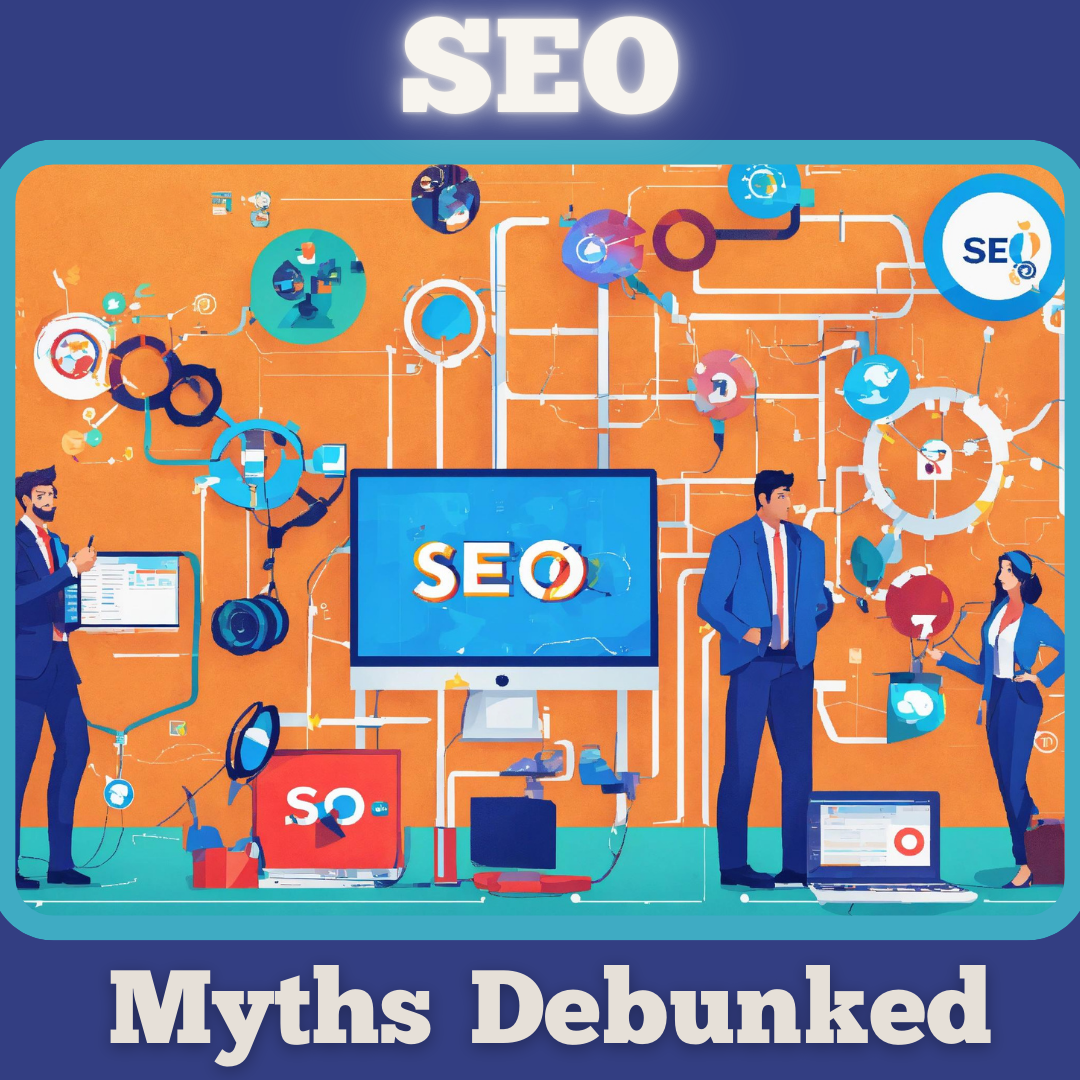Debunking Common Myths About SEO
In the ever-evolving world of digital marketing, search engine optimization (SEO) stands as a cornerstone of online success. However, with its rise in importance, a myriad of myths has also emerged, confusing and misleading many. Let’s unravel some of the most common SEO myths and set the record straight.
1. Myth: SEO is a One-Time Task
One of the biggest misconceptions is that SEO is a “set it and forget it” strategy. Many believe that once they’ve optimized their website, they can move on. In reality, SEO is an ongoing process. Search engines like Google frequently update their algorithms, and your competitors are constantly working to outrank you. To stay on top, you need to regularly update your content, optimize new pages, and adjust your strategies based on performance data.
2. Myth: Keyword Stuffing Boosts Rankings
In the early days of SEO, stuffing your content with keywords was a popular tactic. However, search engines have become much smarter. Today, keyword stuffing can actually harm your rankings. Google now prioritizes content that provides value to users, which means your focus should be on creating high-quality, relevant content rather than cramming as many keywords as possible.
3. Myth: More Links = Higher Rankings
While backlinks are an important ranking factor, it’s the quality, not the quantity, that counts. Hundreds of low-quality, spammy links can do more harm than good. Search engines value links from reputable, relevant sources. Building relationships with industry influencers and earning links from authoritative websites will benefit your SEO far more than amassing a large number of irrelevant links.
4. Myth: You Must Submit Your Site to Search Engines
Once upon a time, submitting your site to search engines was necessary to get indexed. Nowadays, search engines are more sophisticated and can find your site through links from other websites. While it doesn’t hurt to submit your site, it’s no longer a critical step in your SEO strategy. Focus instead on creating great content and earning links from reputable sites to ensure your pages get indexed.
5. Myth: SEO Guarantees Immediate Results
SEO is a long-term investment, not a quick fix. Unlike paid advertising, which can drive traffic instantly, SEO takes time to show results. It can take weeks or even months for your efforts to pay off. However, the benefits of a well-executed SEO strategy can be long-lasting, driving organic traffic to your site for years to come.
6. Myth: Social Media Doesn’t Affect SEO
While social media is not a direct ranking factor, it can indirectly impact your SEO efforts. Social media platforms can drive traffic to your website, and increased traffic can signal to search engines that your site is valuable. Additionally, content that performs well on social media is more likely to earn backlinks, which can improve your rankings.
7. Myth: SEO Is Only About Rankings
Many believe that the sole purpose of SEO is to achieve high rankings on search engine results pages (SERPs). While rankings are important, they are just one piece of the puzzle. A comprehensive SEO strategy also focuses on improving the user experience, increasing website traffic, and driving conversions. Ultimately, SEO is about attracting the right audience and guiding them through the conversion funnel.
Conclusion
Understanding the truth behind these common SEO myths can help you create a more effective strategy. Remember, SEO is a dynamic field that requires continuous learning and adaptation. By focusing on quality content, user experience, and staying up-to-date with the latest trends, you’ll be well on your way to SEO success. #myths#debunked#SEO#rankings#diveneonline#best#solutions












